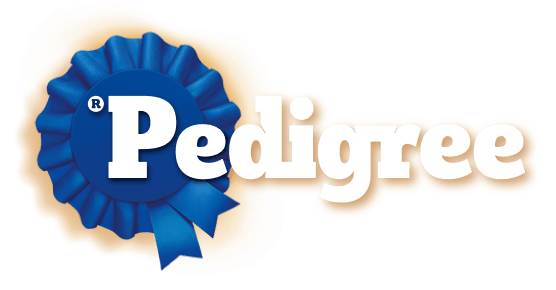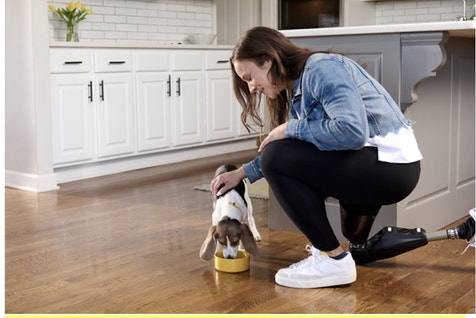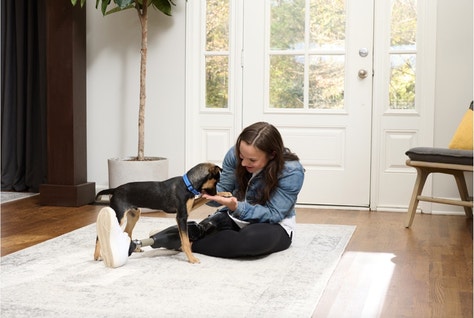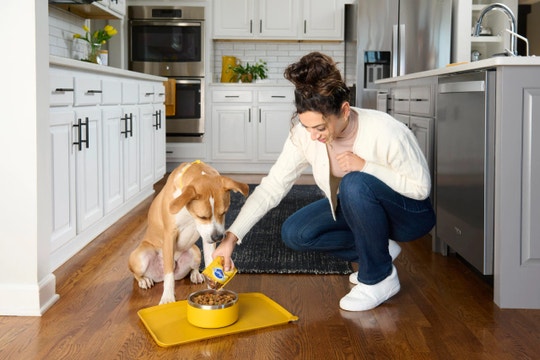
What Do Dogs Eat? | Feeding Guide for Pet Owners
As a pet owner, it’s important to understand what types of food are safe for your dog. In this comprehensive feeding guide, we’ll cover what foods your dog should (and shouldn’t) eat. Then we’ll share feeding tips to keep your beloved pet happy and healthy.
Table Of Contents
Dogs are omnivores, meaning they enjoy a variety of meat and plant-based foods. And while some dogs are picky eaters, most like to eat just about anything, including:
Turkey
Chicken
Corn
Chickpeas
Salmon
Broccoli
Rice
Sweet Potato
Cooked Eggs
Keep in mind that your dog’s main source of food should come in the form of dog food, whether that’s dry kibble, wet food, or a combination.
Unfortunately, dogs don’t just like to eat the safe foods listed above. Some also have a taste for things that can be harmful, like raisins or onions.
As a responsible pet owner, knowing what your dog should and shouldn’t eat is crucial.
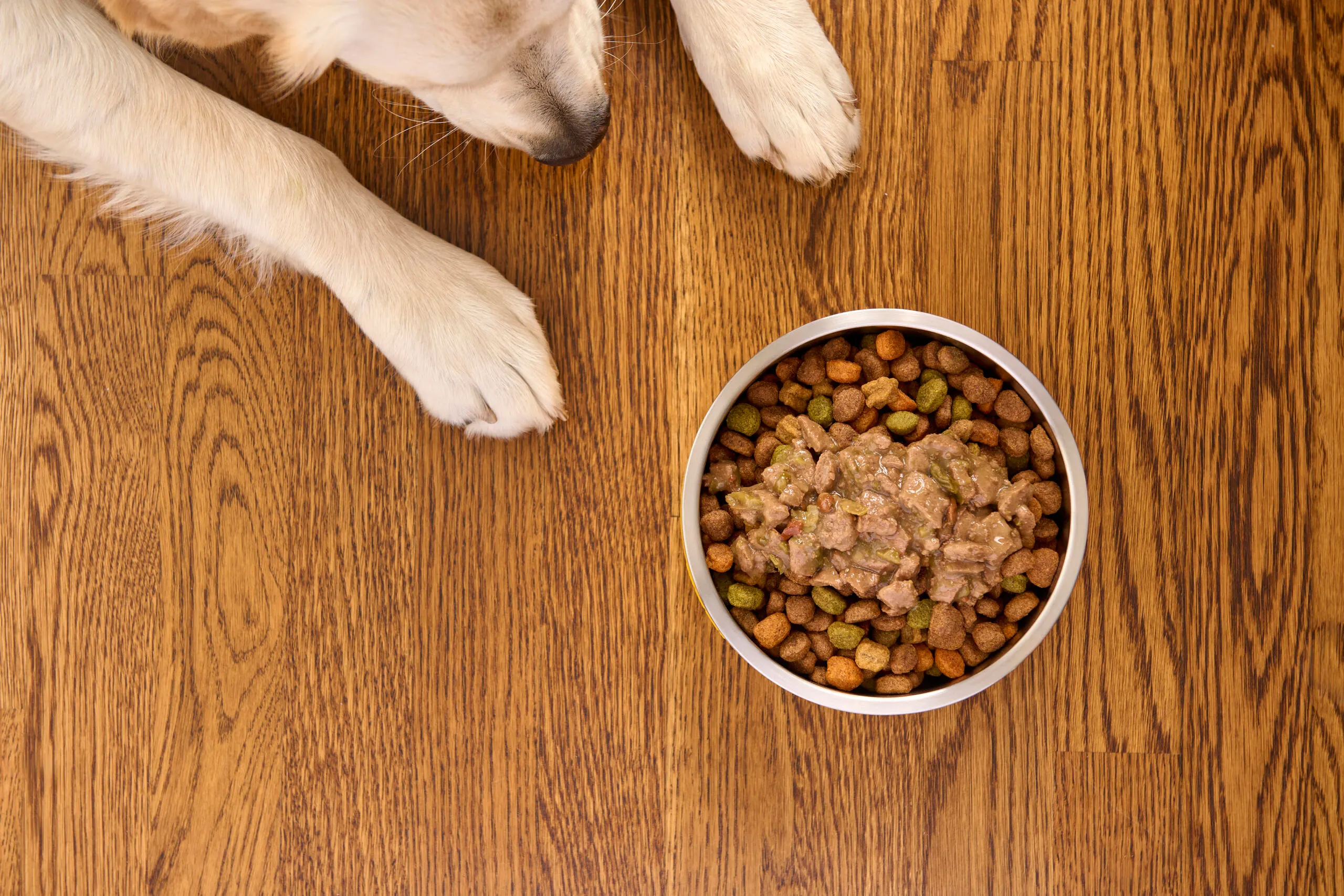
What Nutrients Do Dogs Need?
Dogs should get all of their necessary nutrition from dog food. Like people, dogs need a well-balanced diet with the right amount of protein, carbohydrates, fats, vitamins, minerals, and water to thrive. The exact amount of each type of food varies depending on your dog’s age(open in new tab), breed, size, and activity level.
Let’s look at what nutrients should be included in complete and balanced dog food.
Protein
Protein is essential for building strong muscles and repairing body tissue. Good sources of protein for dogs include:
Fish
Beef
Chicken
Turkey
Lamb
Eggs
When shopping for dog food, look for one with plenty of high-quality protein sources. Puppies need at least 22.5% crude protein, while older dogs need at least 18%. Animal proteins are generally seen as “high-quality” due to their amino acid profile. This means they contain all the essential amino acids needed to support the animal.
Carbohydrates
Carbohydrates provide energy for dogs. Good sources of healthy carbs for dogs include:
Sweet potato
Rice
Corn
Oats
Barley
Wheat
Vitamins and Minerals
Vitamins and minerals help support your dog’s overall health. These include:
Vitamins A, D, E, and K
B vitamins
Choline
Calcium
Phosphorus
Trace minerals (such as iron, zinc, copper, and iodine)
Fats and Fatty Acids
A fat-free diet is unsuitable for dogs because they need fat for energy and essential fatty acids to help absorb and better digest(open in new tab) vitamins.
Here are some excellent sources of fat for your furry friend:
Vegetable oil
Flaxseed oil
Coconut oil
Animal fat
However, it’s important not to give your dog too much fat as this can lead to providing too many calories. Calorie intake that exceeds calorie expenditure can lead to canine obesity(open in new tab) and other health issues.
The right dog food provides the perfect balance of protein, carbohydrates, fruits and vegetables, and fats to keep your dog healthy and happy. Look for a brand that offers complete nutrition, such as the PEDIGREE® brand.
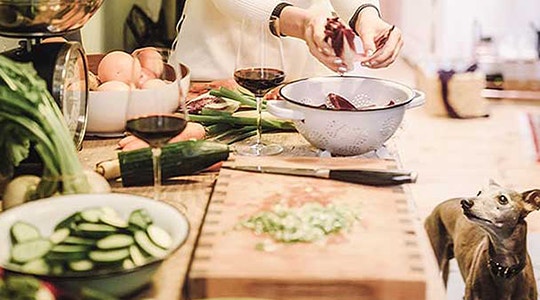
What Not to Feed Your Dog
Now that you know more about what to feed your dog, it’s time to look at what you should never give your dog.
The following table foods are toxic to dogs. But keep in mind that this isn’t an all-inclusive list. If you aren’t sure if something is safe for your dog, it’s better to err on the side of caution and avoid giving it to them.
Table of Contents
Chocolate
While you may enjoy indulging in a piece of chocolate, don’t share it with your dog. Chocolate contains theobromine and caffeine, which can be harmful and even fatal for dogs if consumed in large quantities.
Grapes and Raisins
Grapes and raisins may seem like a harmless snack, but they can cause kidney failure(open in new tab) in dogs. Even a small amount can be toxic, so keep them out of your dog’s reach.
Onions and Garlic
Onions and garlic contain compounds that can damage your dog’s red blood cells and lead to anemia. These foods are especially harmful for smaller dogs(open in new tab), though any breed can be affected.
Keep all forms of onions and garlic, including powdered or cooked versions, away from your dog’s diet. Since these spices are common in human foods, check ingredients carefully before sharing anything with your pup.
Avocado
All parts of the avocado contain persin, which can cause vomiting and diarrhea in dogs. The pit of the avocado is also a choking hazard and can get stuck in a dog’s digestive system.
Xylitol
Xylitol is a sugar substitute commonly found in gum, candy, and other sweets. While it’s safe for humans, it can cause low blood sugar and liver failure in dogs.
Alcohol
It may seem obvious not to give your dog alcohol, but accidents can happen at parties or holiday gatherings(open in new tab) when someone unknowingly offers your pup a sip of their drink.
Even small amounts of alcohol can be toxic for dogs and lead to vomiting, loss of coordination, tremors, and even coma.
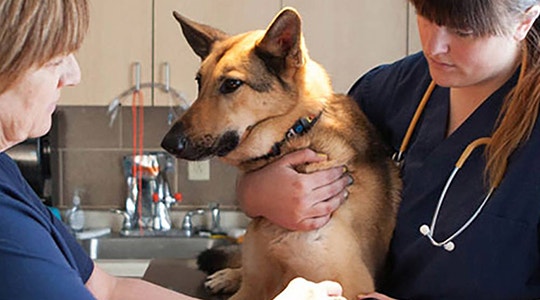
Dog Feeding Tips
Talk to your Vet
Every dog is different, so it’s always a good idea to consult your veterinarian before making any major changes to your dog’s diet. They can advise what foods are safe and may have specific recommendations based on your dog’s breed, size, and age.
Choose the Right Dog Food
When it comes to dog food, not all brands are created equal. Look for one committed to the well-being of dogs, such as the PEDIGREE® brand, which offers a variety of options for all life stages(open in new tab).
We develop our recipes based on research from the Waltham Petcare Science Institute. Our dry and wet dog food recipes provide essential nutrition(open in new tab) to keep your dog healthy.
Follow Portion Recommendations
No matter how nutritious your dog’s diet is, they can experience health issues if they eat too much. Follow the portion recommendations on the dog food packaging to ensure you don’t overfeed or underfeed your pup.
Maintain Regular Meal Times
Dogs are creatures of habit, so it’s important to establish a regular routine when it comes to meal times.
Whether you feed twice or three times a day, try to stick to the same schedule each day. This can help regulate your dog’s digestion and make it easier for them to know when it’s time to eat.
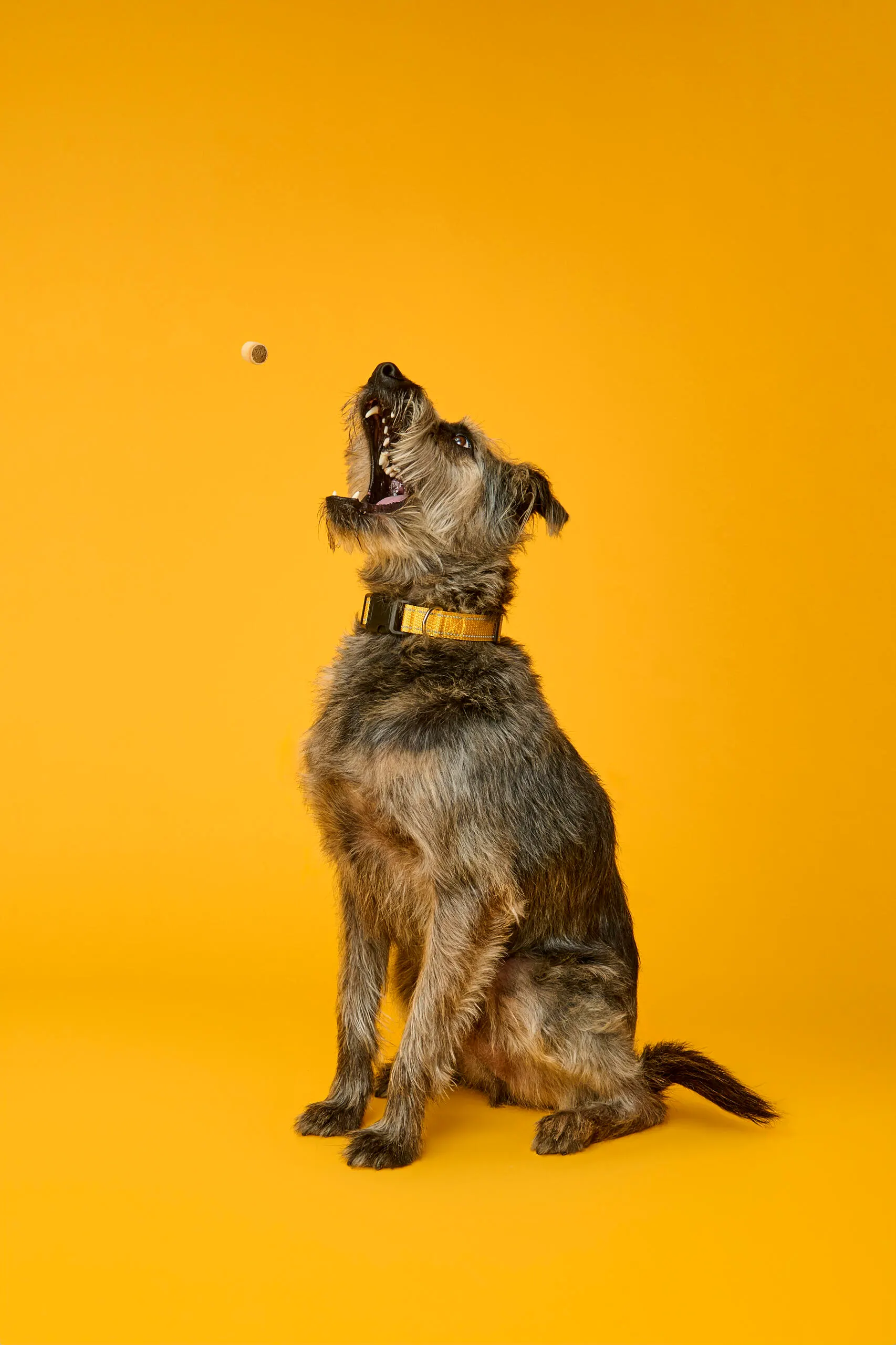
Limit Treats
Dog treats(open in new tab) are called treats for a reason — they should be given sparingly. Too many can lead to obesity, dental issues, and an unbalanced diet. Limit treats to no more than 10% of your dog’s daily caloric intake.
Here are a few dog-approved treats to try:
Offer Table Food Sparingly
You may be tempted to share your favorite human foods with your furry friend, but it’s important not to make a habit out of this practice. Human food is often too rich for dogs, meaning it can lead to digestive problems or even pancreatitis.
Stick to their designated meals and treats for a well-balanced diet.
Always Have Fresh Water Available
Dogs need access to fresh water throughout the day. Make it easy for your pup to drink by providing multiple water dishes throughout your home, especially during hot weather or after physical activity.
Make Changes Gradually
If you need to change your dog’s diet, do so gradually. Switching suddenly can cause digestive upset and discomfort for your dog.
Introduce new foods or treats slowly, mixing them with their current diet until they get used to the change. Going at this pace also makes it easier to monitor your dog’s reaction to the new formula.
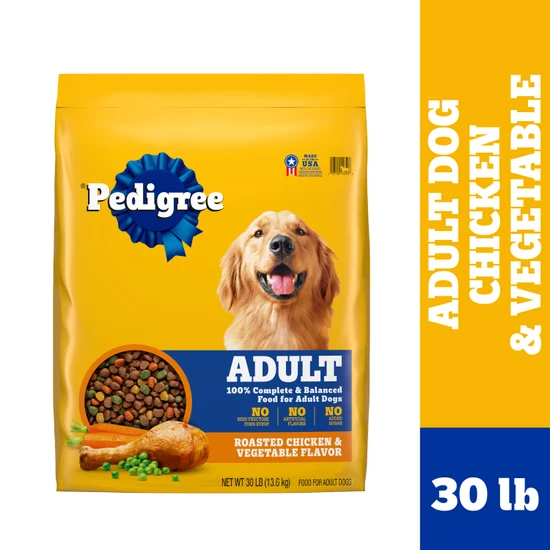
What Do Dogs Like to Eat? PEDIGREE® Dog Food!
Knowing what your dog likes to eat is important, but not as important as knowing what they should eat. Dogs have different nutritional needs than humans, so what may be tasty and healthy for you could harm your canine companion.
Remember to stick to a balanced diet specifically formulated for dogs, whether you’re offering kibble, wet dog food(open in new tab), or treats.
PEDIGREE® dog food is a great choice for all your dog’s nutritional needs! Our dry and wet dog food and treats encourage, support, fortify, and fuel a dog's power.
